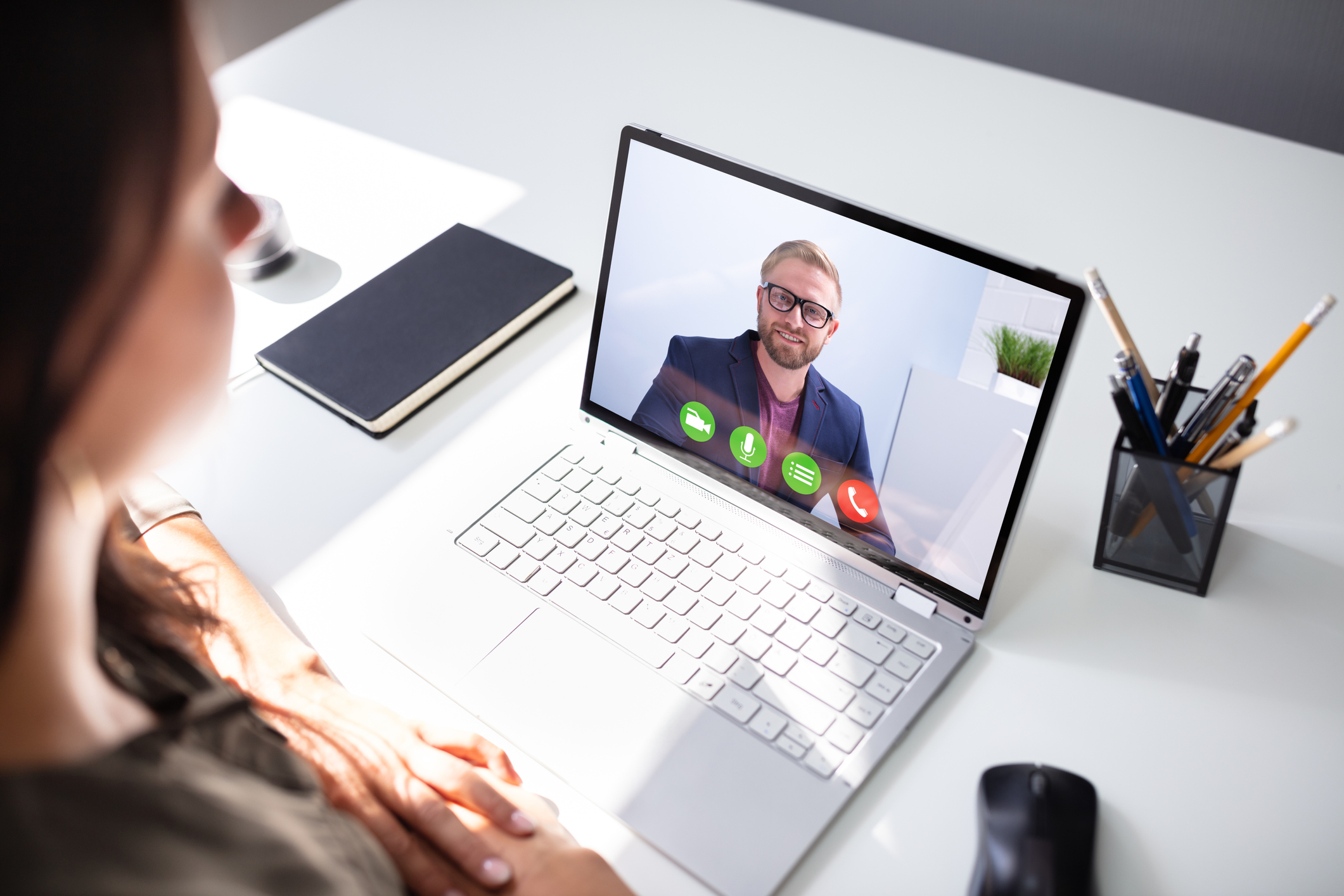
While punctuality is generally not as much of a priority in Italy — and it may be reasonable to expect an interview to start late — it is extremely important for you to arrive on time for a job interview in Italy. Arriving 10 to 15 minutes early is recommended, but any earlier than that could be considered too early and might even be taken as a show of anxiety or agitation.
First impressions are very important in Italy. The way you introduce yourself is crucial. When you enter the waiting room, always be nice and polite to the receptionists, security guards, and anyone who welcomes you. They may report their first impressions of you and your behavior to the HR managers.
The traditional greeting is to shake hands at the interview’s start and end. Positive body language and a smile are very important. Keep direct and fairly constant eye contact ̶ avoiding eye contact gives the impression that you are untrustworthy or hiding something.
During a panel interview, make eye contact mostly with the interviewer asking the questions, but also scan other panel members. Do not ignore any of the panel members. Normally, each member of the panel participates in the final choice.
Italians place a lot of importance on social status and etiquette. Use titles frequently. When addressing someone they respect or their supervisor, Italians often use the person’s title instead of their name. Titles also are used for those with college or graduate degrees, for example:
- doctors: dottoressa (women) and dottore (men)
- lawyers: avvocatessa (women) and avvocato (men)
- professors: professoressa (women) and professore (men)
If you’re talking to someone who doesn’t hold a professional title, you should address them as Signora, Signorina, or Signore (for married women, single women, and men, respectively), followed by their surname. Note that Signorina is only used to address young, unmarried women.
Top executives and subordinates may not use first names when addressing each other and may use the formal form of speech (Lei) instead of the informal form of address tu (you).
During the Interview
At the first interview, business cards are usually exchanged. One side should be printed in Italian.
Remain relaxed and confident. Listen carefully before responding to questions. Go into the interview to be sure of yourself, knowing you possess the qualities and abilities required for the job. Show confidence and passion for your work and give 100% to the job. Don’t be humble or arrogant ─ simply be yourself with more confidence to give you an edge.
Paraverbal communication skills (tone and volume of voice, rhythm, speed, etc.) are also important. Try to avoid speaking in a monotone voice that could bore your interviewer. Don’t pause between sentences too often — use pauses wisely to reinforce key concepts. A moderate speaking pace will also seem more natural and not show that you are nervous.
Always respect the interviewer’s personal space, especially concerning the recent pandemic and health concerns. Don’t stand too close, don’t touch them, and don’t touch the personal belongings on their desk. Limit your hand gestures; using too many could make you appear chaotic and invasive.
Never say anything negative if you’re asked about a previous company or job. Complaining in the workplace is not viewed positively. Also, since personal relationships are a crucial part of Italian business life, the business community can be quite close, and ‘everybody may know everybody’ (especially in the same industry).
When interviewing with agencies/recruiting firms, you’re usually asked to sign a document agreeing to disclose your personal information according to Italian privacy law 196/2003. This is usually because recruiting firms may interview one candidate for several positions and need this authorization for their databases.
Types of Interviews
The recruitment process in Italy is mainly based on interviews, usually between two and four, but there is no formula for interviewing. The colloquio (interview) can be anything from casual to formal and intimidating. It is generally an awkward mix of the two.
Interviews are usually structured or semi-structured. The behavioral interview is the most commonly used format. This technique is designed to determine how you have handled some critical situations.
A first interview could be held on the phone or via video. This is usually a screening process to select only the candidates who will be contacted for an in-person interview.
The first interview is normally with the HR department, and it could include psychometric testing, such as verbal, numerical, and language testing, as well as personality profiling. The other interviews are held by the prospective manager/supervisor (sometimes with someone from HR) to test your knowledge and skills and judge the potential fit in terms of personality within the department. In small organizations, the last interview may be with the CEO.
Assessment centers are often used in recruiting graduates and young professionals. In these cases, the interview process can take up to three months.
There are also group interviews. In these situations, multiple candidates work together to carry out a project. They’re evaluated according to their contribution to the project and how they behave with other team members. The employer usually wants to see the candidate’s attitude, team spirit, communication skills, and leadership abilities.
In addition to discussing professional credentials, an interviewer could ask personal questions, such as marital status and age. Although technically illegal, this could be a way to test each other’s simpatia (congeniality). No matter how informal the approach becomes, however, always use the Lei verb tense, which is the professional and respectful tense.
Answering Questions
At the beginning of an interview, the interviewer usually asks you to present your professional and educational experience. The interviewer expects you to know about the company and its business. Let the interviewer lead the conversation.
Italian interviewers generally look for communication and relationship skills and enthusiasm. Although this attitude changes, they will often focus on your fit with the company rather than just on technical knowledge or ability.
The interview allows you to give more details about the information in your CV. It’s also the moment to show how great you are and why they should hire you. Don’t be shy about showing them why you would make a difference to the organization if hired.
Do not discuss salary early in the interview process, but if the interviewer brings it up, be prepared to respond. Because of the high job demand, especially among young professionals, many companies have strong contractual power and tend to negotiate salaries with candidates. You need to have a minimum salary to give the interviewer if asked.
Unless specifically asked, don’t talk about your hobbies and passions or what you like to do in your free time.
Post Interview
Because the interview process in Italy is lengthy — up to three months in the case of assessment centers — it is uncommon for applicants to be told immediately of their prospects or the outcome. Patience is required.
Always follow up with a thank you email after the interview. Although it’s not widely used in Italy, it is a winning strategy to make a good impression and stress your interest in the position again.
It is not Italian protocol to contact the company or HR office after the interview to check the recruitment process. It takes time to fill a position, and anything perceived as pressure from a candidate is not viewed positively.
It’s fine, though, to take the initiative if more than two weeks have passed or if the deadline given by the interviewer has passed. In this case, you can write a short email or call the interviewer, asking if a decision has been made.
If the interview wasn’t successful, it might be useful to ask for feedback so you can improve your skills for the next one.
Access to GoinGlobal’s resource database is provided through subscribing institutions. Contact your school’s career center or library for access instructions. Login to your GoinGlobal account here.
Follow @goinglobalTweet to @goinglobal



